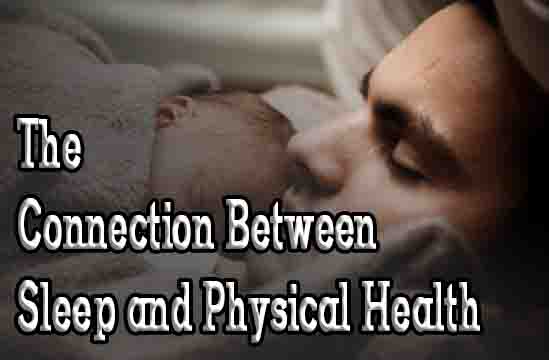Good physical health is a blessing and something that every individual should work to achieve and maintain. Regular exercise and a healthy diet are among the few practices that can help you in this endeavor. There have been countless scientific studies that have found a strong link between quality sleep and good health. Getting enough sleep is essential and can be as important as exercise and a nutritious diet.
The recommended amount of healthy sleep varies from person to person. An average adult requires 7-9 hours of sleep at night. Yet, up to 35% of adults in the United States fail to get it.
People are now becoming aware of the effects good sleep can have on their well-being. There are many facilities, like pbinstitute, that help people struggling with sleep issues and improve their life quality. To learn more, visit pbinstitute.com.
Below are some of the benefits associated with quality sleep at night:
Improvement in Cognitive Function:
Sleep is vital for good cognitive function. Without it, the brain struggles to perform optimally. Inadequate sleep can affect various cognitive functions, including memory, learning, and decision-making. Lack of quality sleep can result in slow response times and reduce focused attention, language, and communication skills.
A study conducted in 2017 explored the impact of sleep disruption. It concluded that poor sleep habits could trigger stress and anxiety.
While some of the effects can be a short-term response, recent clinical studies have shed light on the long-term risks. Constant sleep disruption may be the reason for dementia. A study estimated that poor sleep is partially responsible for up to 15% of Alzheimer’s cases.
On the flip side, quality sleep can prevent it. Researchers view good sleep as a potential form of prevention of dementia and Alzheimer’s disease. It is believed that improving sleep may reduce the likelihood of long-term risks.
Getting the recommended amount of uninterrupted sleep can enhance memory and learning. Sleep improves the ability to retain and recall knowledge to solve problems.
Lower Risk of Weight Gain:
Poor sleep has a direct link with weight gain. Several studies suggested that sleeping for fewer than 7 hours per night can result in weight gain and higher body mass index (BMI). In fact, in 2020, an analysis reported an increased risk of 41% of developing obesity for short-term sleep. Undisturbed sleep longer than 7 hours didn’t increase the risk.
Various studies have suggested that sleep-deprived individuals tend to have a larger appetite. They consume more calories and foods higher in sugar late at night. It eventually results in weight gain. Lack of sleep can also induce fatigue and lethargy.
Lowers the Risk of Heart Disease:
When you sleep, your heart rate and blood pressure fluctuate, and your body produces hormones that aid cell repair. If this cycle is disrupted regularly, there will likely be adverse consequences.
Low-quality sleep may put you at risk of developing heart disease. Researchers once conducted 19 studies and found an increase in the risk of death from heart disease by up to 13%. The group had 7 or fewer hours of sleep.
Short sleep appears to increase the chances of high blood pressure. High blood pressure is heavily associated with heart disease.
On the other hand, if your heart gets consistent sleep, it has twice as less a chance of contracting the disease. It indicates the importance of quality sleep for a healthy heart.
Healthy Immune System:
Yes, lack of sleep can also impact your immune system. People with a lack of sleep are more prone to falling ill. They are more vulnerable to viral and bacterial infections.
Evidence suggests that sleep helps the body to fight infection and improves general immunity. When sleep is disturbed or inadequate, the immune system becomes less responsive.
Sleep not only improves the function of your immune system. It has also been shown to improve antibody responses to vaccinations. This means that getting enough sleep before and after vaccinations can help vaccines work better.
Improved Mental Health:
Sleep and mental health are closely connected. Inadequate sleep can affect your psychological well-being. Insomnia or other sleep disorders are common in people with mental health issues. Living with a mental health problem can affect how well you sleep, and poor sleep can harm your mental health.
Depression is another condition that has been linked to poor sleep. One study concluded that people with anxiety and depression are more likely to report poor sleep.
If you notice a decline in your mental health, it is better to consult a healthcare professional.
Better Emotional and Social Intelligence:
Sleep deprivation impairs your ability to regulate emotions and interact socially. We have a harder time controlling our emotions and behaviors in front of others when we are tired. Tiredness can also impair our ability to respond to humor and show empathy. Prioritizing sleep could help you improve your relationships and become more social.
We have inappropriate emotional reactions when we don’t get enough sleep and can’t put things and situations in their proper contexts. To make matters worse, sleep deprivation compromises the amygdala, the part of our brain responsible for emotion management.
Conclusion:
Along with nutrition and exercise, getting enough sleep is vital for a person’s health. It allows our body to recharge and increase immunity. Adequate rest may also help us with heart disease by reducing the risk and helping us maintain our weight.
Lack of sleep can be dangerous. When we are tired, our reflexes and ability to focus on tasks are heavily compromised. Centers for Disease Control and Prevention (CDC) informed that one out of every twenty-five people has fallen asleep behind the wheel while driving. Those who slept for less than 6 hours were likelier to fall asleep behind the wheel.
Research suggests that you should get 7-9 hours of sleep per night for optimal health. Just like you focus on your physical activity and balanced time, you should give attention to having good quality sleep at night.

